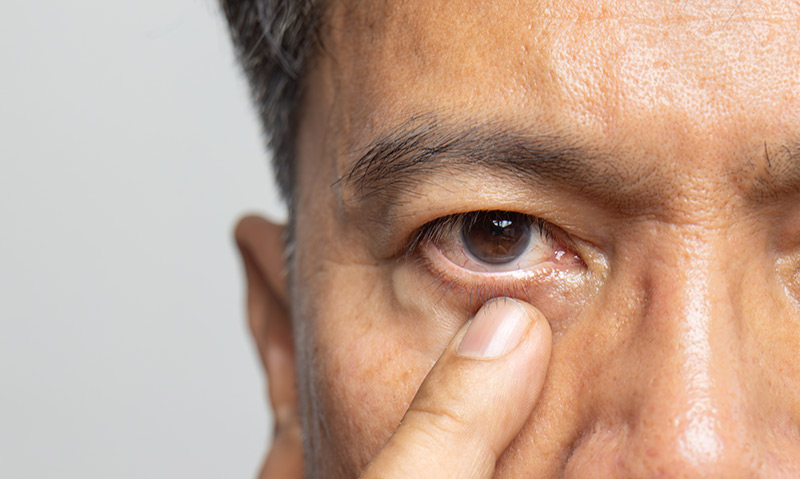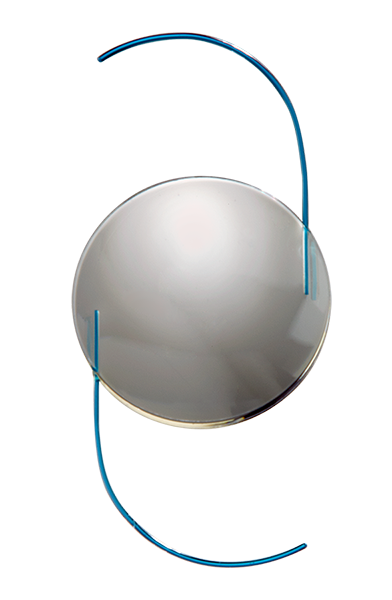Eye Centers of Florida is merging with Quigley Eye Specialists to become The Eye Associates.
The unpleasant side effects of cataracts can become increasingly common as you age, but that does not mean it has to affect your quality of life. At Eye Centers of Florida, our highly qualified doctors and state-of-the-art facilities have allowed us to provide world-class cataract treatments for thousands of patients across Southwest Florida.
Our eyes contain a natural lens that lies just behind the pupil. This lens bends and focuses light, which allows our brains to clearly process the images we see. A cataract is the clouding of your eye’s natural lens, making it difficult for light to pass through the eye and focus properly. The result is a gradual loss of vision.


Cataracts tend to develop as we age and often begin to occur around 55. However, some experience cataracts before 50 due to underlying medical conditions like diabetes, medications, family history, or sporadically. Other factors that increase the risk of cataracts include smoking and UV exposure, as well as trauma from surgery or an injury to the eyes.
Cataracts can create symptoms including:
Click on the symptoms below to see a visualization.







Eye Centers of Florida proudly offers laser-assisted cataract surgery using Alcon’s LenSx® laser. This innovative laser transforms cataract surgery by providing unprecedented precision and customization. The advanced technology incorporates computer control into essential steps of the procedure, giving cataract patients the most state-of-the-art surgical option available.

No-stitch cataract surgery allows for rapid recovery with minimal discomfort and enhanced vision without the use of stitches. Our cataract surgeons create a small incision at the edge of the cornea, enabling them to remove the cataract and insert the IOL without the need for sutures. The area will naturally heal and seal, minimizing discomfort and irritation that can sometimes be associated with stitches.


After surgery, we will prescribe eye drops and advise you to rest. Follow-up visits will be scheduled to check your eyes and make sure they are healing properly.
Typically, you can return to your normal activities within 24 to 72 hours after surgery. If your normal activities include physical work or working outdoors, your doctor may recommend a longer recovery period.
Most patients choose between standard or high-tech lens implants, based on their vision goals and eye health. Schedule a consultation with one of our experienced surgeons to discover which lens is best for you and your lifestyle.
Medicare and most health insurance plans cover the cost of basic cataract surgery, excluding deductibles, coinsurance and copays. If you are interested in an advanced lens implant or laser cataract procedure than an additional payment is required. If you’re a Clemson Eye patient, you have the option of 24‑month, 0% payment plans for any out of pocket expenses.
Our highly experienced cataract surgeons always take the time to discuss the best possible surgical solutions for your visual health and individual situation. They’ve performed over 100,000 cataract operations, and all offer basic and advanced laser cataract surgery to restore your best vision. After your consultation, our surgical team will provide you details of your visual and financial options. Supporting a cataract procedure that is customized to meet your lifestyle visual needs is our goal.
In most cases, we schedule cataract surgery for each eye 1-2 weeks apart, assuming both eyes need surgery. However, in some situations, bilateral cataract surgery is necessary and scheduled.
You will usually be at the surgery center for about 2 hours, but on average the surgery only takes about 15 minutes.
In most cases, general anesthesia (put to sleep) is not necessary to perform cataract surgery. Our anesthesia team will provide some light sedation to help you relax. Numbing drops ensure you will not have any pain. For the short procedure, you will be awake and likely will not remember the surgery.
No. Eye drops are used to numb the eye and patients often see a spectrum of colored lights.
Many will feel comfortable driving, but there are also many who may have an imbalance between their eyes after their first surgery. Those who have an imbalance and reduced depth perception are encouraged to limit driving during the week between surgeries. In addition, caution should be taken while walking up and down stairs and curbs after the first eye if the depth perception is initially reduced.
The most important thing is not to rub your eye. You will need to wear a clear, plastic shield at night for the first week to help protect the eye. Although the risk of infection is rare, we also ask you to avoid swimming in pools and hot tubs for the first two weeks.